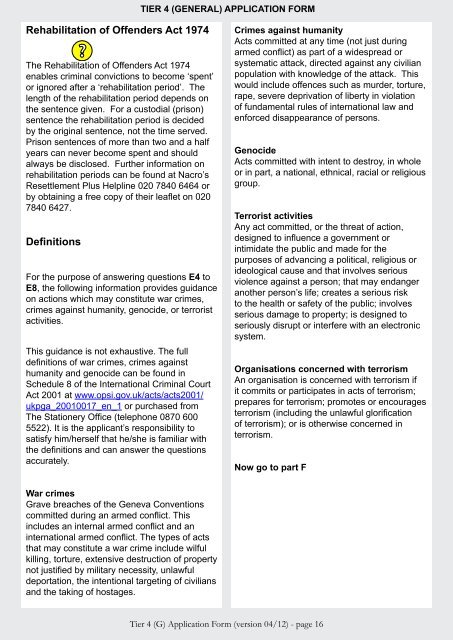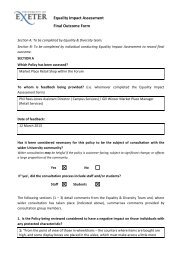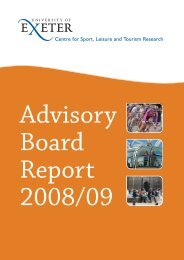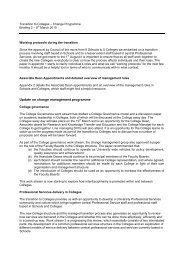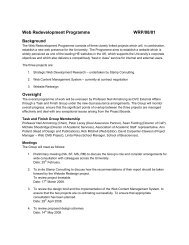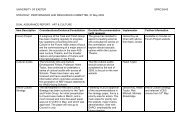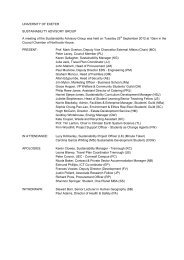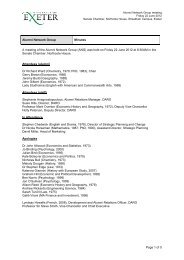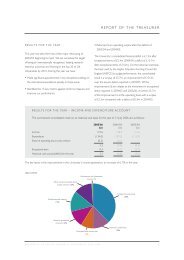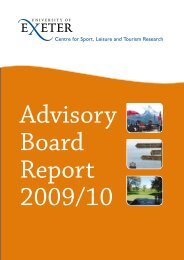TIER 4 (G)
TIER 4 (G)
TIER 4 (G)
Create successful ePaper yourself
Turn your PDF publications into a flip-book with our unique Google optimized e-Paper software.
Rehabilitation of Offenders Act 1974<br />
The Rehabilitation of Offenders Act 1974<br />
enables criminal convictions to become ‘spent’<br />
or ignored after a ‘rehabilitation period’. The<br />
length of the rehabilitation period depends on<br />
the sentence given. For a custodial (prison)<br />
sentence the rehabilitation period is decided<br />
by the original sentence, not the time served.<br />
Prison sentences of more than two and a half<br />
years can never become spent and should<br />
always be disclosed. Further information on<br />
rehabilitation periods can be found at Nacro’s<br />
Resettlement Plus Helpline 020 7840 6464 or<br />
by obtaining a free copy of their leaflet on 020<br />
7840 6427.<br />
Definitions<br />
For the purpose of answering questions e4 to<br />
e8, the following information provides guidance<br />
on actions which may constitute war crimes,<br />
crimes against humanity, genocide, or terrorist<br />
activities.<br />
This guidance is not exhaustive. The full<br />
definitions of war crimes, crimes against<br />
humanity and genocide can be found in<br />
Schedule 8 of the International Criminal Court<br />
Act 2001 at www.opsi.gov.uk/acts/acts2001/<br />
ukpga_20010017_en_1 or purchased from<br />
The Stationery Office (telephone 0870 600<br />
5522). It is the applicant’s responsibility to<br />
satisfy him/herself that he/she is familiar with<br />
the definitions and can answer the questions<br />
accurately.<br />
War crimes<br />
Grave breaches of the Geneva Conventions<br />
committed during an armed conflict. This<br />
includes an internal armed conflict and an<br />
international armed conflict. The types of acts<br />
that may constitute a war crime include wilful<br />
killing, torture, extensive destruction of property<br />
not justified by military necessity, unlawful<br />
deportation, the intentional targeting of civilians<br />
and the taking of hostages.<br />
TIeR 4 (GeneRAl) APPlICATIOn FORM<br />
Tier 4 (G) Application Form (version 04/12) - page 16<br />
Crimes against humanity<br />
Acts committed at any time (not just during<br />
armed conflict) as part of a widespread or<br />
systematic attack, directed against any civilian<br />
population with knowledge of the attack. This<br />
would include offences such as murder, torture,<br />
rape, severe deprivation of liberty in violation<br />
of fundamental rules of international law and<br />
enforced disappearance of persons.<br />
Genocide<br />
Acts committed with intent to destroy, in whole<br />
or in part, a national, ethnical, racial or religious<br />
group.<br />
Terrorist activities<br />
Any act committed, or the threat of action,<br />
designed to influence a government or<br />
intimidate the public and made for the<br />
purposes of advancing a political, religious or<br />
ideological cause and that involves serious<br />
violence against a person; that may endanger<br />
another person’s life; creates a serious risk<br />
to the health or safety of the public; involves<br />
serious damage to property; is designed to<br />
seriously disrupt or interfere with an electronic<br />
system.<br />
Organisations concerned with terrorism<br />
An organisation is concerned with terrorism if<br />
it commits or participates in acts of terrorism;<br />
prepares for terrorism; promotes or encourages<br />
terrorism (including the unlawful glorification<br />
of terrorism); or is otherwise concerned in<br />
terrorism.<br />
now go to part F


